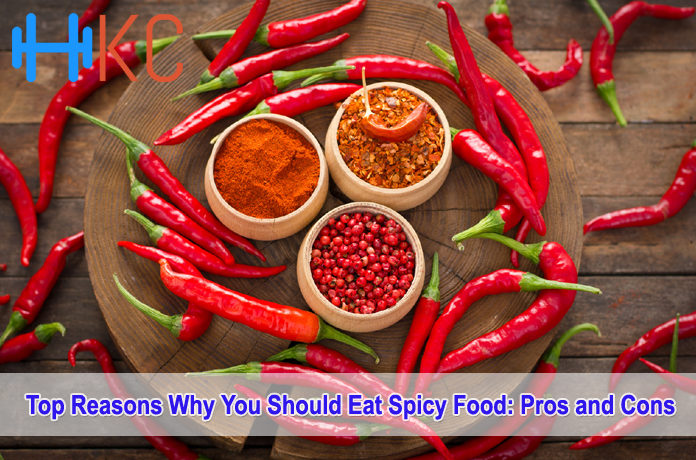
Top Reasons Why You Should Eat Spicy Food: Pros and Cons
From chicken wings to Thai food, you might have a feel a temporary sting in your guts after indulgence. Have you ever thought about the mystery behind spicy foods? Why we find the pleasure in pain? Why hot sauce bottles are plastered with words like death and atomic etc., still we like too spicy?
One theory suggests we indulge in spicy foods just for a thrill, like riding a roller coaster or running a marathon. Oddly, we humans find pleasure in really freaking scary and painful things. It is like the battle of the mind vs. body, where the minds win.
Another theory holds a view that spicy foods have a wide range of health benefits, so our body craves these foods.
According to my theory, there is nothing wrong with relishing spicy food as long as you know how it can have an impact on your body. If you know when to stop and hold back from indulging in your favorite food, you can do a great favor for your health. Spices usually get a bad name, but you cannot maintain good health without making it spicy.
1. Weight Control
Capsaicin is the compound that gives hot red chilies its kick. Speculation of the notion suggests spicy foods enable efficient burning out of calories. Hot and spicy food is delightful for the taste buds, but it can also help you to lose weight. Capsaicin in spicy food like jalapenos, habaneros, and cayenne, is a natural chemical to speed up metabolism, increase the heart rate and body temperature. According to the New York Times, spicy dishes temporarily boost metabolism and speed up the process of calories burning.
The active compounds in chilies are major waistline warriors against craving. Red pepper helps to manage the appetite and helps in burning out calories. Spicy dishes have more chances to leave you satisfied after a meal. According to a Canadian study, the group men under observation consumed 200 fewer calories than peers because they had an appetizer with hot sauce. Cindy Kasindrof, co-founder of the Joni Juice, suggests eating spicy food with a heavier meal, like lunch or dinner, is the best time for the consumption of spice.
The sprinkling red pepper on your meal is a dietary change which does not require much effort.It will result in sustainable weight loss benefits in the long run especially when paired with exercise and healthy eating.
2. Slow Down Aging
Spicy food increases longevity because it slows down the aging process by increasing blood flow to face and body. Increase blood flow to face and body make skin look and feel more youthful. According to Dr. Kasindrof, any food that helps you inside of your body can make you look good.
According to a Chinese study, eating spicy food once or twice a week reduces 10 percent overall risk of death. If it were not convincing, you would look the other way around how spicy food aids in longevity. Eating tasty food helps in cancer prevention; it makes the heart healthy and helps you to lose weight. All these things together can help you to live a longer life.
3. Cancer Prevention
Numerous studies have suggested that regular consumption of chilies and curry decrease the risk of cancer. Capsaicin decreases the growth of cancer cells, and in some case, it causes the death of the cancer cells without harming the surrounding cells. In countries where diet is rich in chilies and capsaicin, such as in India and Mexico, the chances of having cancer are low.
Spicy food has an anti-cancer potential. Turmeric, a peppery flavored spice contains active antioxidant curcumin which has some anti-cancer effects. According to American Cancer Society, Capsaicin slows down the growth of prostate cancer cells.
4. Good for Heart
Pungent food is always good for the heart. Hot pepper improves heart health by enhancing the ability of the body for blood clots dissolution. Capsaicin, the active ingredient available in jalapenos, cayenne pepper, and red chili peppers, decrease bad cholesterol and improve the heart functioning. According to a study conducted by American Chemical Society capsaicin reduce the accumulation of Cholesterol in a body and lower the rate of breakdown. Capsaicin also blocks the gene that makes arteries narrow that cause increase in blood flow in the vessels. Capsaicin fights inflammation, a risk factor for heart disease.
According to research low density cholesterol resist oxidant for longer time period. Adding chili to your diet will decrease the heart stroke rate. The consumption of spicy foods also improves blood circulation and help in decreasing blood pressure.
5. Healing or Pain Relief
The consumption of spicy food is an excellent way to relieve from sinus as it opens up the breathing airway. As mentioned above spicy food improves blood circulation and enhances the flow of blood in the body, thus improve the entire system. People facing sinus conditions are not alone taking advantage of spices. Chili pepper is considered to be medicinal as this component of your diet is chock full of vitamins like A and C chili pepper boost immune system and even fight the common cold.
If you have the problem like pain from arthritis, shingles or even some kind of headache doctor will recommend using an over the counter cream with capsaicin as an active ingredient to relieve pain. The cream will have a concentrated amount of capsaicin which is very effective for pain relief.
6. Improve Digestion
Spices improve digestion. It increases the hydrochloric secretion of a stomach, which in turn increase blood flow as well as strengthen the mucous lining. Capsaicin kills bacteria like Pylori.
Spleen, a primary organ involved in digestion and food transportation, is the primary ingredient in Chinese medicine. Damp body affects the functions of a spleen. Therefore, the proper use of chili can help you to get rid of body dampness for better functioning. Chili by increase food transport and metabolism will assist in the digestion process. This is the reason why people found chili helpful in weight loss.
Other Benefit
Other than enhancing the flavor of your dishes spicy food will help you in different ways. The heat from hot spicy food will cause your brain to release feel-good endorphins. This will help your body to fight against the pain from heat, but it will live up your mood. According to experts hot spices reduce inflammation, increase heart rate and will help in pain relief.
Australian researcher reveals that regular consumption of spices in your meal make you fell asleep easily, woke up easy and spent your day more energetically. Hot pepper actsas expectorants. People with asthma, chronic bronchitis, emphysema, sinusitis and some other respiratory condition can breathe more easily with the help of hot pepper.
Flip Side of The Coin
It is difficult to deny the fact that spicy food has a fair share of benefits, but it also has some downfalls. Are you fond of hot and spicy delicious items? Don’t worry you can lose some extra pounds from your body. Capsaicin, the fiery substance in chili pepper by increasing your body heat and metabolism offer a wide range of benefits for a body, but this same component elicits intense short-term symptoms. Although, current evidence confirms that capsaicin protects against ulcer pathogen, but the extreme amount of spicy and hot food consumption on the continuous basis can aggravate some significant problems such as the ulcer.
1. Irritant
Capsaicin has some significant health benefits, but it also has some drawbacks. Capsaicin can be a very potent irritant which can cause damages to the lining of the stomach which in turn will cause gastritis, ulcers and intestinal diseases.
2. Tasteless
You add spices to enhance the flavor of your dishes but what if you start diminishing the ability of your taste buds? Yes, spicy food causes irreparable damages to your taste buds hampering sense of taste.
3. Eye Warned You
The unwanted and ever presented most critical side effect of chilies is effects of cutting pepper when you touch your eyes.
4. A Bad Burn
Spices add flavors and make your food tasty, but you will end up with a burnt tongue and burning sensation in your mouth or even worse that. Spicy food also causes heartburn and reflux disease because spices are acidic rich with irritant properties which can create and unwanted effects.
5. Watch out for Ulcer
Losing weight through consumption of chilies doesn’t mean to devour tons of spicy food. Moderate use of spices can increase heat temperature, lead to increase in metabolism and consequently weight loss. The flip side of the coin suggests excessive seasoning will increase the acid content in your abdomen and it will cause the ulcer.
How Many Chilies Should You Eat?
According to me, if your body and the season are suitable to eat chilies, then eat a certain amount of chilies but don’t overeat it. If you overeat chili, it may overheat the body or can result in some significant damages to your health such as the ulcer. Therefore, it is essential to take the moderate quantity of spicy foods particularly when you have sensitive stomach issues and low tolerance for spices. Make your food medium spicy and keep yourself hot to improve or extend your lifestyle and culinary horizons.
Bottom line
Those who eat spicy food twice a week or more reduce the risk of death by 10%. Spicy food consumption six times or more in a week reduce the risk by 14% because spices improve metabolism, heart rate, and blood circulation.It helps in losing fat, burning calories and much more. Other than seasoning food spices have some significant damages to your health and body such as digestive disorders and much more. I have talked about spices and how you can leverage all its benefits without succumbing to the setbacks. Now you have good and bad views at eating spicy food. The added taste and sensation of hot sauce in your diet will outweigh the bad, but the cons of tasty food are a very subjective matter.









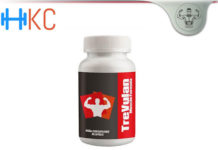
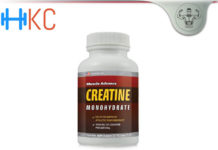





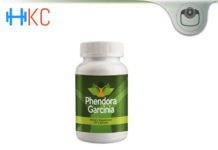







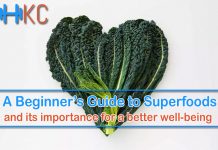

















Thank you for your article.Really looking forward to read more.